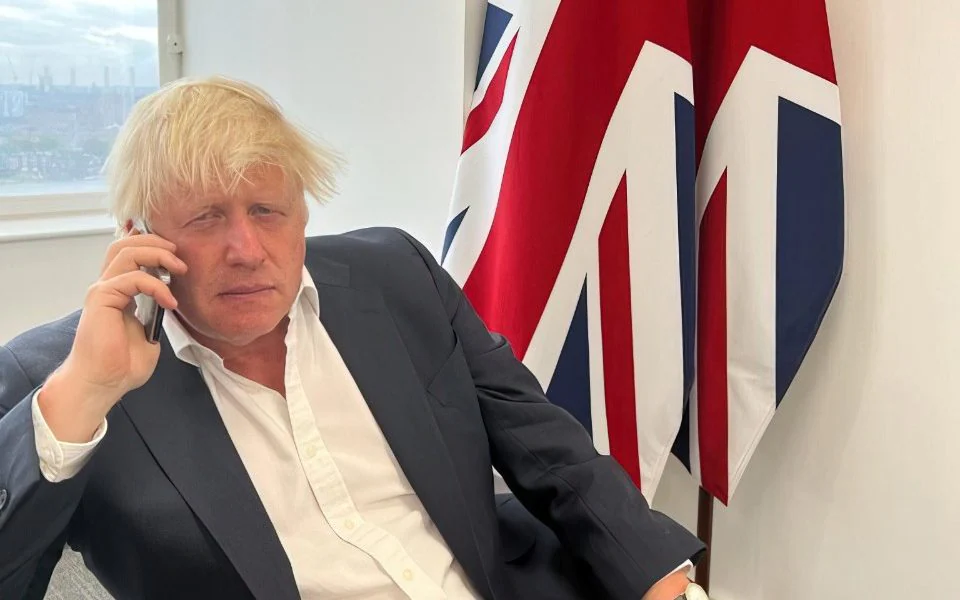Former British PM, Boris Johnson yesterday dramatically pulled out from what will have been an audacious bid to return to power within weeks of having been ousted, declaring that he would not run to replace outgoing leader Liz Truss.
The surprise decision, which the ex-leader said he had reached reluctantly after recognising he would not lead ‘a united party in parliament’, removes a major obstacle to his political foe, former finance minister Rishi Sunak, becoming prime minister.
That could now happen as soon as Monday.
Johnson, 58, said he had reached out to both Sunak and cabinet member Penny Mordaunt — who launched her leadership campaign on Friday — to ‘come together in the national interest’.
But the three of them had ‘not been able to work out a way of doing this’, he added.
Read Also: Why Liz Truss Reisgned As UK Prime Minister After 45 Days
‘Therefore I am afraid the best thing is that I do not allow my nomination to go forward and commit my support to whoever succeeds,’ he said in a statement.
‘I believe I have much to offer but I am afraid that this is simply not the right time.’
Earlier Sunday, Sunak formally announced he was standing for the top job, just weeks after having failed in a first attempt.
The former finance minister vowed ‘integrity, professionalism, and accountability’ and to lead Britain out of ‘profound economic crisis’.
‘I want to fix our economy, unite our party and deliver for our country,’ he said in a short statement posted on Twitter confirming his widely expected candidacy.
The Tories have been forced into a second, this time expedited, leadership contest since the summer following Truss’s resignation after only 44 disastrous days into her tenure over her calamitous tax-slashing mini-budget.
Johnson had cut short a Caribbean holiday to return to Britain Saturday to try to stage a political comeback less than two months after leaving office.
He was reportedly lobbying Conservative colleagues ahead of a Monday afternoon deadline to secure the 100 nominations required to face a vote of the Tories’ 357 MPs.
In his statement, he said he had met the threshold by gathering 102 nominations, after being ‘overwhelmed by the number of people who suggested that I should once again contest the… leadership’.
There was ‘a very good chance’ he could win the race — to be decided by the approximately 170,000 party members this week if a run-off is held.
‘But in the course of the last days I have sadly come to the conclusion that this would simply not be the right thing to do,’ he added.
‘You can’t govern effectively unless you have a united party in parliament.’
Johnson, who only relinquished power in early September following a government revolt over a slew of scandals, is still seen as the grassroots’ favourite.
Sunak had raced ahead in the count for Tory MPs’ support, drawing backing from across the parliamentary party and crossing the minimum threshold Friday.
He currently boasts the public backing of 146 Tory lawmakers, according to a BBC tally. The publicly declared support for Johnson ran at 57, and 23 for Mordaunt.
Johnson and Sunak held talks late into Saturday night, reports said.
The ex-leader also reportedly spoke on Sunday to Mordaunt, who was said to have rebuffed his calls to back him, noting her supporters were likely to split more for Sunak.

